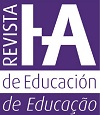The rationality for the advancement of assessment of the quality of education
DOI:
https://doi.org/10.35362/rie5911407Keywords:
educative policies, quality assessment, rationalities, complexity, interests, tensionsAbstract
Assessment policies of educative quality are being implemented, in a more or less systematic way, since sixties' years; nevertheless, their extension to different continents and countries has been uneven. Nowadays, it seems that there exist some consensus over its need, and we also find various stances and important debates regarding its characteristics, its senses, its effects and, specially, over the role these policies play in the change and improvement of education of countries, what they give for the educative schools improvement, for the teaching and student learning improvement.
In thissense, thisarticle discussesthese policies' fundamentals,andits variouspossible meanings, understood in terms ofexplicitor underlyingrationales. In any case, beyond the analytical approachin its analysis,we must mention thedifficulty of buildingaproperinterpretive frameworkfromlogicalpartialand fragmentedpolitical and socialreality, assuming therefore theneed for asystemicand complex approach that is ableto account forthe possible coexistence ofdifferentrationalities, opposed even in thesettingof educational policyin this case.This reflectsthe variety ofdemands and intereststhat revolvearound policies and, in this case,educational policies, which in this view, is characterized byaconstantfield of tensions.
Downloads
How to Cite
Downloads
Published
Issue
Section
License
Any authors who publish with this journal accept the following terms:
















